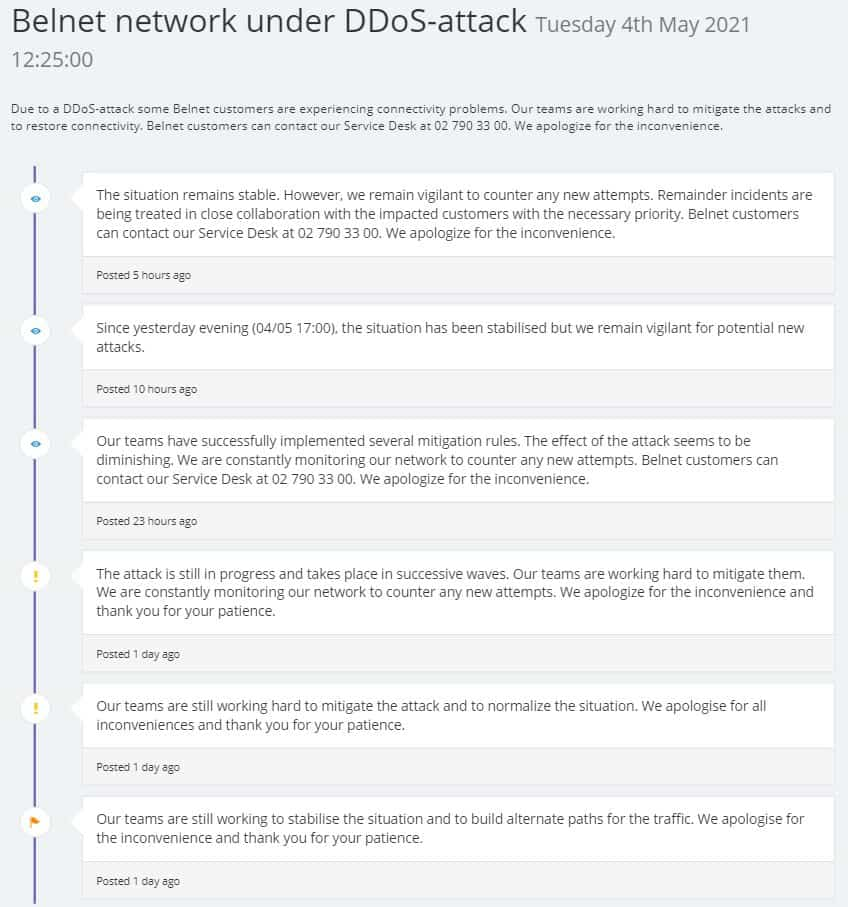Over 200 Belgian Websites Become Target of a Series of DDoS Attacks Including Belgian Federal Parliament and Police.
Websites of over 200 Belgian organizations, including government, parliament, research institutes, scientific institutes, ministries, and universities, went offline after a large-scale DDoS attack targeted Belnet, a major ISP provider in the country.
How did it start?
The DDoS attack started on Tuesday at 11 am. It was a massive attack that overwhelmed websites with traffic to such an extent that they were rendered unusable for visitors. The attack disconnected them off from the internet as the websites’ internal systems couldn’t handle such huge traffic.
Due to the attack, several debates and community meetings were postponed because the websites couldn’t facilitate virtual services.
Why Was the Attack So Disruptive?
According to Belnet’s technical director Dirk Haex, the attack was highly disruptive because the attackers kept altering their techniques, making it difficult for them to neutralize it.
The Center for Cybersecurity Belgium, the country’s central cybersecurity authority, has been informed about the incident and investigating the attack. Belnet has filed a complaint with the Federal Computer Crime Unit too.
Belnet back online
According to Belnet’s press release, its services are back online, but follow-up attacks are expected. Websites having .be domain are affected in this attack, some of them, such as Antwerp and Brussels police, were functioning again on Wednesday.
“We are fully aware of the impact on the organizations connected to our network and their users and we are aware that this has profoundly disrupted their functioning,” stated Haex.
It is clear that the attackers only wanted to disrupt Belnet’s services as there’s no indication of a data breach or attackers infiltrating the network. They only overwhelmed it with traffic.
“We cannot expect to know tomorrow who is behind it. It is a very complex analysis that has to be done,” Haex added.











